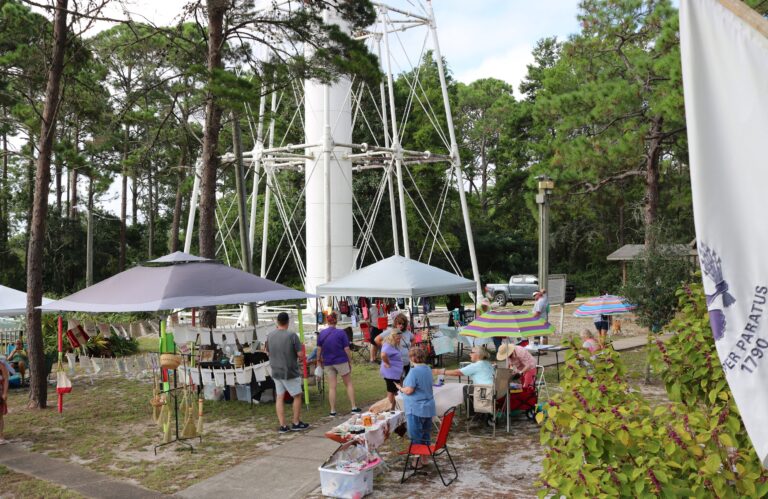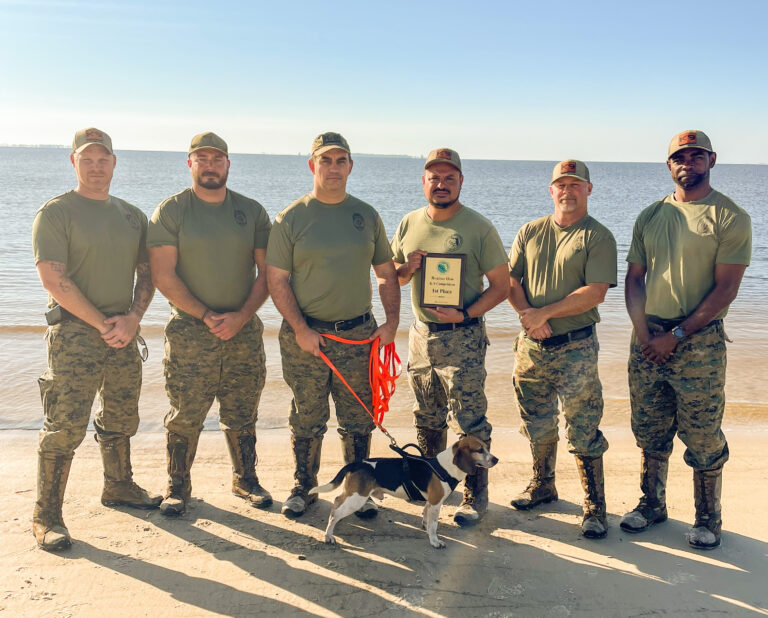Legacy Post Disclaimer
This is a #Legacy post imported from The Apalachicola Time’s previous platform. If you’re experiencing issues with this article, please email us at news@nevespublishing.com.
Frankly Franklin: With a mighty hand and outstretched arm
In my reporting of county news, the impact of which blesses the long, the short and the tall, irrespective of faith, the last thing I hope to accomplish is to squander any reputation I have for accuracy and inclusivity (Did you know the Times has readers in Thailand?) by writing about the potentially divisive subject of faith.
But that is what I am about to do, in the hopes these words have the effect I wish them to have, and not lead to stuff I don’t want to see happen.
After all, this is Holy Week, a sacred week for Christians worldwide, which because of how the full moon falls, is concurrent this spring with Passover. So if I’m ever going to take a leap of faith on a subject such as this, this is the week to do it.
Now, were I to survey readers as to whether I ought to write something like this at all, my guess is Angelo D’Amico, the barber in Carrabelle, probably would advise me against it.
In his shop, in big letters on a printed red, white and blue sign that if you were sitting in one of his two chairs, as I was last Saturday morning, you could not avoid staring directly at an explicit prohibition against talking about politics or religion. The man is 83 years old, still on his feet all day long, and any boy who lived through a fascist dictatorship and survived a world war in his native Italy, and went on to make it in America, might be someone whose advice you ought to heed, whatever it is. I’ll ask him for it when my hair grows long enough to need cutting again.
The reason for my trip east Saturday was to visit John and Jill Rees in St. James Bay because a day earlier I realized I had forgotten Passover was to begin Saturday night. So I reached out quasi-frantically on Facebook to see if someone could pick me up some matzoh in Tallahassee or Panama City. Jill posted she had an extra box, and thus after my haircut I went to to pick it up.
She also threw in a jar of gefilte fish, a traditional appetizer at the Passover seder, as well as some homemade charoset, a blend of apples, wine and nuts, which is a tasty symbolic prop because it resembles the mortar of bricks we Hebrews used to build the pyramids when we were slaves in Egypt. By eating it, we remember.
So, flush with a box of whole wheat matzoh, I was set to have dinner with Maryellen and Denny Bonavita. This, however, would be unlike the previous Saturday evening dinners they shared with me and Carol Barfield around the dining room table of the 16th Street house where they stay during the winter.
I suggested that we do an actual seder, the traditional elaborate meal and retelling of the Passover story that is, in terms of family warmth and religious significance, to the Jewish calendar what Yuletide is to the Christian one. They were good with it, no doubt sensing that being alone this year, I was a little haunted by the ghost of seders past. feeling like Moses did after fleeing to Midian, where he married one of Jethro’s seven daughters, who then gave birth to their son, Gershom, a name derived from Moses' empassioned, perhaps relieved, lament that “I have been a stranger in a strange land.”
I suppose Jews aren’t the only people who, saturated by a larger, contrasting world which at times they only sort of tentatively and tangentially feel a part, are beset by a Gershomesque forlornness, an outsider alien in custom sensing the coldness of a cautious welcome. By connecting we belong.
I brought a seder plate from the many in my dad’s apartment that one year ago, after wrapping up his affairs, I brought back with me. Maryellen dutifully boiled the egg, saved a shank bone, and picked parsley from her garden, each an element of the plate that is the meal's central, symbolic feature.
I also grabbed a handful of the thin, round skullcaps knitted for me over the years, as well as one highly-significant one, a colorful embroidered Bucharan kippah, in the thick shape of a kufi, that is the favored headgear of Jews of Spanish origin who over centuries have inhabited the Middle East, Asia and North Africa.
This kippah my father brought back from Israel many decades ago, and this kippah he wore at many seders after that, which he commanded back to when we were little kids even up to when age had curtailed his sharpness and stamina. I recalled how it would slide to the side of his glossy bald head, just like it did after 78-year-old Denny, the patriarch of the evening, placed it atop his own stubbled brow. By sharing we relive.
Rather than bore you with details of exactly what takes place during a seder (Barfield and the Bonavitas got their fill of them Saturday), or perhaps raise dander with an inexact reference to a contrasting religious belief that you, my reader, might hold fast to, I will summarize by explaining the seder can be summed up in four words: From slavery to freedom. That the truth is, and I quote, “once we were slaves in the land of Egypt, and now we are free.”
Through the telling of stories, excerpted from the Torah and the teachings of the rabbis, with song and celebration, the seder unfolds, reaching out even to the littlest amongst us, who traditionally recites the Four Questions, which translate roughly to “Why are we doing this, y’all? Why are we eating matzah? What’s going on here? Can you tell me please?” Being the youngest, Carol read them aloud. By questioning, we learn.
The seder serves as the answer to the kid’s questions, and in this case, ours wove together ancient Jewish teachings with Denny’s mid-20th century tales of his grandfather, who was hobbled his adult life after being slammed against rock in a coal mine accident, and of his grandmother, both emigrants from Italy to Pennsylvania, where they indeed were “strangers in a strange land.”
You are to drink four cups of wine on Passover, each a tribute to what is being taught here, how Joseph arrived first, and caught Pharoah’s favor, and then the whole story of what happened with baby Moses and Mount Sinai. Ask Carol if you want details; she did a fine job of expounding on the finer points of the Biblical story.
The wine, it must be noted, prompted Denny to do a superb historical re-enactment of his own devising, nothing about confronting Pharoah or of parting the Red Sea, but of his hunched-over grandpa whupping his butt because he not only had drunk from his cask of good wine, but then tried to cover it up. As much as I love Denny, I was rooting for the older gentleman. By our chastisements we are made whole.
“This is the bread of affliction that our ancestors ate in the land of Egypt,” reads a passage in the Haggadah, the book you read from on Passover. “Anyone who is hungry should come and eat, anyone who is in need should come and partake of the Pesach sacrifice.
“Now we are here, next year we will be in the land of Israel; this year we are slaves, next year we will be free people.”
I was hungry and I came and ate, and in so doing, I was freed, just as we all need to be freed to live in that figurative place that flourishes deep inside all of us.
A place where we find our purpose, where the shackles of addictions are loosened, and the burdens of oppressive loneliness and worry, of painful and self-defeating thoughts, all overcome. We do that in much the same way the Almighty, Blessed be He, did it way back when in Egypt land, “with a mighty hand and an outstretched arm.”
What is that mighty hand? A helping hand. What is that outstretched arm? The outreach of friends. By our hearts, we are healed.
This article originally appeared on The Apalachicola Times: Frankly Franklin: With a mighty hand and outstretched arm




Meet the Editor
David Adlerstein, The Apalachicola Times’ digital editor, started with the news outlet in January 2002 as a reporter.
Prior to then, David Adlerstein began as a newspaperman with a small Boston weekly, after graduating magna cum laude from Brandeis University in Waltham, Massachusetts. He later edited the weekly Bellville Times, and as business reporter for the daily Marion Star, both not far from his hometown of Columbus, Ohio.
In 1995, he moved to South Florida, and worked as a business reporter and editor of Medical Business newspaper. In Jan. 2002, he began with the Apalachicola Times, first as reporter and later as editor, and in Oct. 2020, also began editing the Port St. Joe Star.